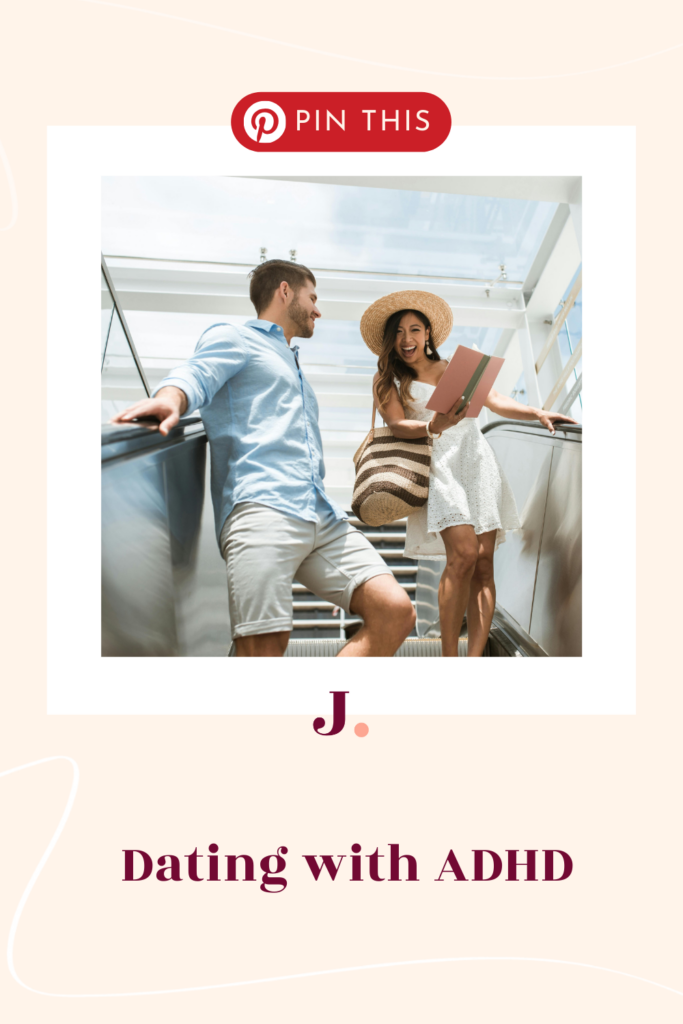listen now!
Check out my latest podcast interviews where I cover a range of topics around dating, attraction & relatioships!
Prefer to listen than to read?
Blog Categories
other
relationships
attraction
dating
START
Understanding your primary dating archetype takes you closer to truly understanding the dynamics of attraction, improving your relationship skills, and expanding your opportunities to find a great partner!
Take the quiz: Uncover your Dating Blind Spots!
Hey, I'm Jiveny Blair-West an Australian Dating, Attraction & Relationship Coach. Want to navigate the modern dating scene with more clarity and insight? Then stick around, explore or click here to learn about working with me.
Dating with ADHD
Filed under:

Dating with ADHD comes with unique challenges, from managing impulsivity to pacing emotional investment. In this Q&A with Cosmopolitan Magazine, I share practical strategies for building healthy, fulfilling relationships—whether it’s learning to set boundaries, staying present on dates, or balancing excitement with long-term compatibility.
COSMO: ADHD can sometimes make people feel “too much” for others. What advice would you give to individuals with ADHD who worry about being overwhelming in a romantic context?
JIVENY: I would first encourage them to embrace their uniqueness as a strength rather than a flaw. Having energy, enthusiasm, and the ability to think outside the box are qualities that can make you incredibly engaging and inspiring to a potential partner.
That said, self-awareness is the key, not just to success in relationships, but also to finding success in life itself. Whether you have ADHD or not it’s essential to approach relationship building in a paced way – that means not getting too ahead of the present reality and waiting for signs of mutual investment and reciprocation before going ‘all in’.
By taking things one step at a time and keeping an eye on the other’s level of investment, you protect yourself from the unnecessary heartache that often comes with rushing in too quickly. Instead, you can intentionally create the foundation for a balanced, fulfilling relationship one date at a time. This is about letting the connection breathe and evolve at its own pace—without losing yourself in the process.
COSMO: Impulsivity and hyperfocus are common ADHD traits. How can these traits be both an asset and a challenge in relationships, and how can daters find balance?
JIVENY: Impulsivity might lead to hasty decisions or overdisclosing in the heat of the moment and hyperfocus too early in a relationship can feel overwhelming for the other person.
Traditionally doctors prescribe ADHD meds to focus at work, but it’s now being recognised that taking the meds before important interactions with people is equally worthwhile. (Which means going for dates at lunchtime is a good idea, as taking the meds in the evening can interfere with sleep.)
Again, finding balance starts with self-awareness. Recognise when these traits are showing up and ask yourself: Is this serving the relationship right now?
Building routines, practising mindfulness, and seeking support from trusted friends who can help you pace the relationship and stay grounded can make a big difference. As the relationship progresses, it’s also helpful to share that ADHD is part of who you are when the time feels right – not too early though – maybe around date three or four.
COSMO: What are some strategies for navigating the emotional rollercoaster that ADHD can bring to dating and relationships?
JIVENY: Make self-care a priority. Regularly check in with yourself emotionally, especially after challenging moments. Seek the support of trusted friends – ideally those who are in happy, healthy relationships, especially if you’re seeking advice or perspective. (It’s important to carefully choose who you go to for dating support as while some of your single friends might have good intentions, they may not have the most grounded perspective on dating, particularly if they are struggling with their own challenges).
Engaging in activities like journaling, exercise, and spending time in nature can also be helpful. I also recommend creating a list of resources you can turn to when dating feels overwhelming. Having this list handy—whether on your phone or fridge—can serve as a helpful reminder of ways to support yourself through the emotional ups and downs of dating.
COSMO: How can someone with ADHD communicate their needs and challenges to a new partner without feeling like they’re oversharing or scaring them away?
JIVENY: All of us have our crosses to bear. This leads healthy people to be generally accepting of these sorts of things when they see a person genuinely working on themselves.
I recommend waiting until a genuine connection has formed, such as on a second, third or fourth date, to share this information. This gives the other person a chance to get to know you first, avoiding premature assumptions. ADHD is nothing to be ashamed of—many people with it build thriving relationships—but it’s best to let it be one part of the bigger picture of who you are, not the first thing someone associates with you. Sharing it at the right time is a thoughtful form of pacing that allows someone to take it onboard within the larger context of who you are.
Once the conversation has been opened, you can continue to build on it over time. Remember, you don’t have to share all the nuances of how ADHD affects you in one go—let the conversation evolve naturally.
It’s also important to have realistic expectations of your (potential) partner. While it’s essential to communicate your needs, don’t expect them to make significant changes for you. Just let them appreciate how you do things differently. Take ownership of your challenges and show that you’re actively working on strategies to manage them. This creates a sense of balance and respect in the relationship, allowing both of you to work together without feeling overwhelmed.
COSMO: What are some practical tips for staying present and avoiding distractions on dates?
JIVENY: For a first date, it can be helpful to suggest an activity that keeps you engaged and moving, like going for a walk or doing something interactive. This not only helps ease any nervousness but also provides a way to stay focused by giving your body something to do, making it easier to stay present in the moment.
Minimising distractions, like putting your phone away, can also help you stay engaged in the conversation. (Studies have shown that even having your phone face down on the table/within your line of sight drastically reduces your focus, so best to keep it on silent in your handbag). If you feel your mind wandering, know that it’s okay to take a moment to reset.
People with ADHD can focus on subjects that interest them. Everyone has a story of interest, you just need to help them to talk about it. So, with genuine inquisitiveness, find a subject the other person can tell you about.
COSMO: Boundaries can be tricky for those with ADHD. How can daters with ADHD learn to set healthy boundaries without feeling guilty?
JIVENY: Setting healthy boundaries can be especially tricky for those with ADHD, but it’s important to remember that boundaries are a skill that everyone needs to learn and practice.
Learning what you can about assertiveness and boundary setting through books and courses is a good place to start developing this critical life skill. This is something I teach in my Alchemy of Attraction program – particularly as it relates to dating and romantic relationships.
Also know that it’s normal to feel uncomfortable or even guilty when setting boundaries, even for experienced boundary setters. If you’re feeling particularly anxious about this, it can be helpful to reach out to a trusted friend (i.e. someone who has a secure and grounded view of relationships) for reassurance and encouragement that the boundary you are setting is reasonable.
I always encourage my clients to approach boundary-setting from a place of love, recognizing that sometimes being firm is necessary for both your well-being and the other person’s growth. It’s also valuable to remind yourself that setting a boundary, though uncomfortable, is a courageous step towards expressing your needs in a healthy way.
Another key aspect of setting boundaries is recognizing that sometimes the boundaries we need to set are internal, not just with others. For example, telling yourself, “I’m not going to double text someone if I’m still waiting to hear back,” is an important way to manage impulsivity and maintain emotional balance.
These self-boundaries are just as important as external ones because they help regulate your behaviour and emotions, keeping you grounded in the process of dating without reacting too quickly. It’s all about learning to pause, reflect, and trust that giving space to both yourself and the other person can lead to healthier connections. People with ADHD may need to work harder at this, but it’s worth the effort.
COSMO: How can people with ADHD avoid falling into the trap of chasing novelty at the expense of long-term compatibility in relationships?
JIVENY: First I think it’s important to get clear on what you’re seeking at this stage in your life, as in, what kind of relationship are you looking for – casual (novelty) or committed? Novelty, by definition, cannot be the basis of a long-term, successful relationship!
If it’s committed you want, what’s your vision for the future and how does a relationship fit into that? Also what values are most important for you to share with a partner? Getting clear on this can help you recognise when you might be chasing excitement versus true love.
Second, if you find chasing novelty is your tendency, it’s important to get clear on what your patterns are actually about. Are there some unresolved issues that need to be addressed? A common pattern is people chasing ‘exciting’ unavailable people because they are actually afraid of letting someone get close to them.
In the book I co-wrote with my psychiatrist father, How to Make the Biggest Decision of Your Life, we unpack the research and explore the factors that can guide you in thoughtfully choosing a long-term partner to invest in. Understanding these things can be a helpful guide to navigating modern dating.
I also want you to know that you don’t have to settle. While true love might feel like a slower burn in the beginning, it can offer deeper, more lasting satisfaction than the initial rush of novelty that tends to fizzle out eventually.
If you want a step-by-step guide to navigating the dating process, check out our Slow Dating Movement course.

Explore Programs
Since 2016 I’ve been working with singles aged 20-70, helping them to re-claim their personal power, date well, create a meaningful, lasting relationship and find more joy in their everyday life. If that's the kind of support you are looking for, it would be my pleasure to help you do the same!
An online dating, relationship, and personal empowerment coach here to help you step into your power and build meaningful relationships in all areas of your life.
Hi, I'm Jiveny Blair-West,
QUIZ FOR MEN
QUIZ FOR WoMEN
Uncover the energy you lead with in love - and what might be holding you back. Take the quiz to reveal your strengths, blindspots, and next steps toward relationship mastery.
This is a bold, no-fluff tool to help you decode your relationship style and start playing the game of love on a whole new level!
Discover Your Dominant Attraction Archetype
Ok, I'm in!
Get my best tips for creating a charismatic online dating profile that stops the swipe and makes a captivating first impression!
Download my free guide to maximising your online dating profile
What next?
Take the quiz!
Uncover Your Dating Blind Spots:
Uncover Your Dating Blind Spots: